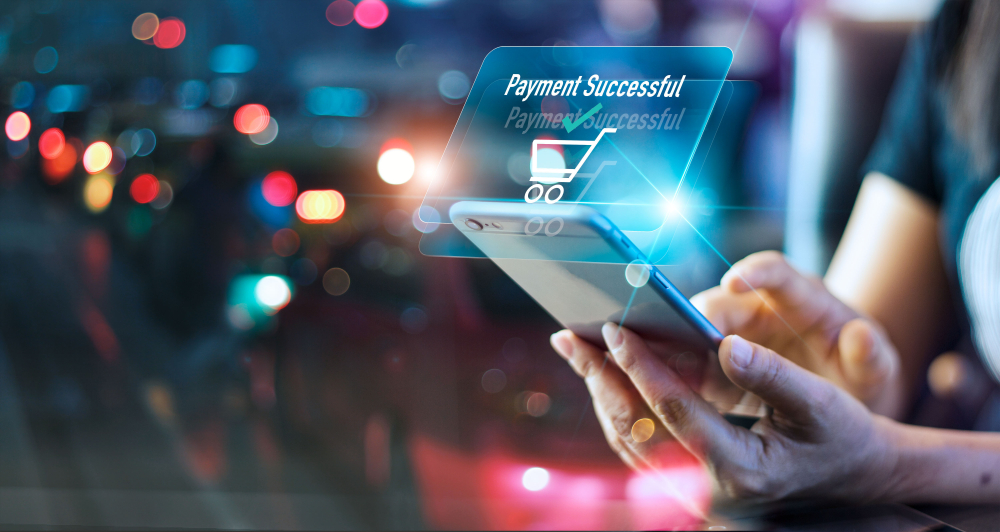With the growth of digital marketplaces, understanding what is a credit card gateway is crucial for businesses managing online transactions. Credit card payment gateways are at the heart of transaction processing, serving as the critical link between merchant websites and the financial networks that process payments. This article introduces and explains the role of credit card processing gateways, which are an essential component of modern e-commerce and in-store electronic payment systems.
Credit Card Processing Gateways
Credit card processing gateways are specialized services that connect a merchant’s point-of-sale system to the payment networks required to authorize, settle, and manage electronic payments. At its core, a credit card gateway serves as an intermediary, ensuring transactions are transmitted securely from the point of sale to the acquiring bank and relevant card networks.
Understanding Payment Terms for Businesses
Businesses today encounter a variety of payment terms and technologies, with each offering its own set of capabilities and requirements. Navigating the payment ecosystem involves understanding the roles of merchants, customers, banks, credit card issuers, and payment processors. A credit card gateway fits into this ecosystem by acting as a messenger between the merchant and the processor or bank.
A clear grasp of the steps involved in processing a transaction, from authorization to settlement, is vital. This includes recognizing what occurs during each phase and how gateways facilitate these processes. Finally, familiarity with industry-specific terms like authorization, capture, settlement, chargeback, and PCI compliance is imperative. This knowledge helps in selecting services and solutions that align with a business’s needs.
Explaining What a Credit Card Gateway Is
A credit card gateway is a service that securely transmits credit card information from a point-of-sale system, whether online or in a physical store, to the payment networks and banks that handle the transaction. By employing advanced security protocols, the gateway ensures that sensitive cardholder information is protected throughout the transaction process. Here, we detail the pathway a transaction takes through a gateway:
- Encryption: When a customer enters their payment information, the gateway encrypts the data to prevent unauthorized access during transmission.
- Authorization Request: The encrypted data is sent via the gateway to the payment processor, which then forwards the request to the relevant card association (Visa, MasterCard, etc.) and the issuing bank for approval.
- Response: The issuer returns an authorization response—approved or declined—back through the chain to the gateway, which then relays this response to the merchant.
- Settlement: Upon completion of the day’s transactions, the merchant sends the approved authorizations through the gateway for settlement, facilitating the transfer of funds from the issuing bank to the merchant’s account.
Credit card gateways are an indispensable part of conducting secure and reliable business transactions, providing a framework that not only supports the technical aspects of payment processing but also assures compliance with industry standards and regulations.
Key Functions of Credit Card Gateways
In the realm of digital transactions, credit card gateways functions extend well beyond the simple facilitation of payments, taking on a multifaceted role that is crucial for the smooth operation of online and in-store transactions. These gateways act as the communicative and operational bridge connecting the business and financial infrastructure, ensuring that the flow of payment information is secure, reliable, and efficient.
Facilitating Online Transactions
Online transactions are a complex dance of data, security, and communication, and credit card gateways are the choreographers that make sure every step is executed perfectly. When a customer clicks on the “purchase” button, it initiates a series of rapid exchanges where precision is paramount:
- Data Encryption: As soon as customers enter their payment details, the credit card gateway encrypts this data. Encryption transforms sensitive information into a secure code, shielding it from potential breaches as it travels across the internet.
- Authorization Requests: The gateway then sends the encrypted information to the payment processor. This request contains details such as the card number, expiry date, CVV, and transaction amount.
- Facilitating Communication: The payment processor, in turn, communicates with the card association and issuing bank to verify the transaction’s legitimacy and the customer’s capacity to pay.
- Swift Responses: Once the issuing bank either approves or rejects the transaction, it sends this response back through the card network to the merchant via the gateway. This entire process happens within seconds, a testament to the gateway’s ability to manage critical information swiftly.
- Batch Processing: At the end of the business day, a process known as batch processing occurs. The gateway compiles all approved transactions and forwards them in a batch for settlement, culminating in the merchant receiving the funds.
Bridging Merchants and Banks
The relationship between merchants and banks is underpinned by smooth communication and transactions, with credit card gateways playing a pivotal role as intermediaries:
- Seamless Integration: Credit card gateways are designed to integrate seamlessly with merchants’ existing point-of-sale systems, whether they’re operating online stores or brick-and-mortar establishments. This avoids the need for extensive overhauls of current systems.
- Real-Time Processing: These gateways ensure real-time processing, which is essential for the fast-paced nature of online shopping, where customers expect immediate results and merchants need to keep their inventory and accounting up to date.
- Reconciliation Services: Beyond the initial transaction, credit card gateways also provide reconciliation services. They help merchants keep track of payments, refunds, and chargebacks, which is critical in managing the financial aspects of the business.
- Streamlined Operations: By handling the intricacies of the transaction process, the gateway allows the merchant to focus on other business operations, confident that the financial transactions are being managed effectively and efficiently.
- Access to Diverse Currencies and Card Networks: Merchants aiming to expand their reach globally can rely on gateways to process a variety of currencies and support different card networks, thereby widening their potential customer base.
As the digital commerce landscape evolves, so do the functionalities of credit card gateways. They continuously adapt to offer advanced features like fraud detection, heightened security protocols, and integration with new payment methods, making them an indispensable tool for modern business transactions.

Advantages and Features of Credit Card Processing Gateways
In today’s digital economy, credit card processing gateways stand as pillars that support and streamline transactions. These gateways deliver a plethora of advantages and features, which are tailored to enhance the efficacy, security, and adaptability of business operations. As we explore each facet of these benefits, it becomes clear that credit card gateways are not merely transactional tools but are pivotal in driving commercial growth and ensuring customer retention.
Benefits to Businesses
The landscape of e-commerce dictates that businesses must offer exceptional shopping experiences to their customers. One of the most critical aspects of this experience is the checkout process. Credit card processing gateways provide businesses with significant leverage in optimizing checkout experiences.
The convenience and speed with which customers can complete their purchases are directly proportional to their satisfaction levels. Gateways that offer a quick and easy checkout process, with features such as one-click purchasing and saved payment information, directly contribute to a frictionless customer experience. This ease of use encourages repeat business and promotes a positive brand reputation.
The proliferation of cyber threats makes security a top concern for both businesses and consumers. Credit card gateways come equipped with stringent security protocols, which safeguard the customer’s financial data. These measures are vital in maintaining trust and mitigating the risk of data breaches.
Flexibility of Gateways
Adaptability is vital in a business environment where market dynamics are constantly shifting. Credit card processing gateways offer scalable solutions that can be molded to match the evolving requirements of a growing business.
Gateways are designed to accommodate the changing volume of transactions that a business encounters. Whether expecting a spike in sales from a seasonal promotion or planning for long-term growth, these services can scale accordingly, ensuring that payment processing is never a bottleneck for expansion.
Diverse markets demand specialized solutions. Many credit card gateway providers offer a range of customization options, allowing businesses to tailor the payment experience to their specific needs. This may include support for various payment types, currencies, or even specialized reporting tools for analytics and insights.
Security Considerations
As businesses extend their digital footprint, the security landscape becomes increasingly complex. Credit card gateways play a fundamental role in implementing robust security practices to protect sensitive information.
Tokenization is a security technology that replaces sensitive payment data with a unique identifier or “token” that has no exploitable value. This, coupled with strong encryption standards, ensures that even if transaction data is intercepted, it remains useless to potential fraudsters. Credit card gateways utilize these methods to add an additional layer of security to payment processing.
Adherence to PCI DSS requirements is paramount for any system handling card payments. Credit card gateways enforce stringent compliance measures, reducing the compliance burden on merchants and minimizing the risk of costly data breaches. Regular updates and audits are part of these gateways’ operational standards to ensure ongoing compliance and protection against emerging threats.
By providing businesses with the tools for a secure, seamless, and adaptable payment processing experience, credit card processing gateways prove themselves as essential tools for digital transactions. Through their continued evolution, these gateways are poised to support the growth and resilience of businesses in an ever-changing economic climate.
Choosing the Best Credit Card Gateway for Your Business
When it comes to selecting the right credit card gateway for your business, it is an important decision that can have a significant impact on your operations and customer satisfaction. This section aims to outline the critical factors you should consider, compare some of the top gateway options in the market, and highlight the unique features that distinguish the best credit card gateways. These insights will help you make an informed choice that aligns with your business needs and growth objectives.
Criteria for Selecting the Right Credit Card Gateway
Choosing a suitable credit card gateway requires a careful examination of various aspects that contribute to effective payment processing. Your selection should be guided by the specific requirements and the nature of your business operations. Here are essential factors to ponder:
- Compatibility with E-commerce Platforms: Verify that the gateway seamlessly integrates with your current e-commerce software or any platform you plan to use.
- Payment Security: Look for gateways that provide top-tier security features, such as end-to-end encryption and fraud prevention tools.
- User Experience: Consider the customer’s perspective – a gateway should facilitate a smooth, intuitive payment process.
- Cost Structure: Analyze all fees associated with the gateway, including setup, monthly, transaction, and any hidden costs.
- Payment Options Supported: Ensure the gateway accepts a broad range of payment methods, including credit cards, digital wallets, and possibly cryptocurrencies.
- Customer Support: Assess the level of customer service provided, including availability and responsiveness.
- Reporting and Analytics: Determine whether the gateway offers detailed reporting tools to help you understand your sales data better.
With numerous gateways on the market, it’s crucial to compare them to see how they align with your business’s specific needs.
Noteworthy Features that Set Apart the Best Credit Card Gateways
While many gateways share common functions, the finest offerings in the market present unique features that can greatly benefit your business:
- Multi-Currency and Language Support: Top gateways cater to a global audience, allowing you to accept payments in various currencies and present checkout pages in different languages.
- Recurring Billing Capabilities: For subscription-based services, having innate support for recurring payments can simplify your billing processes significantly.
- Mobile Optimization: With the continued rise of mobile commerce, gateways that offer mobile-optimized payment forms ensure you don’t miss out on mobile shoppers.
- Advanced Fraud Protection: Some gateways utilize machine learning and AI to detect and prevent fraudulent activities in real-time.
- On-Boarding and Transition Support: The best providers assist you in the onboarding process, ensuring a smooth transition without disrupting your sales.
By thoroughly analyzing these factors and comparing the offerings, you can choose a credit card gateway that not only meets your current needs but also supports your business’s future growth. Consider talking to your peers in the industry or seeking reviews and testimonials to get a sense of real-world application and satisfaction with the gateway service offered by Bankful.
Evaluating Your Current Payment Solution
Before deciding on integrating a separate credit card gateway, it’s important to assess your current payment processing system:
- Compatibility: Determine if your current system is capable of facilitating secure and efficient transactions that meet your business needs.
- Limitations: Identify any limitations your current solution may have, such as restrictions on transaction volume, payment methods, or international sales.
- Customer Experience: Consider whether your payment system provides a seamless and satisfactory checkout process for your customers.
Identifying the limitations and gaps in your current setup will inform whether an external gateway is the key to unlocking more robust functionality.
Contemplating the switch to a stand-alone gateway warrants consideration of certain scenarios:
- Customization Needs: If your business requires a high degree of customization to meet unique payment processing demands, a separate gateway might offer the necessary tools and options.
- Business Expansion: For businesses planning to scale rapidly or extend their market internationally, a separate gateway could support this growth with more sophisticated processing capabilities.
- High Transaction Volume: Entities processing a large volume of transactions might find that separate gateways offer more favorable rates or additional services tailored to high-volume sales.
Deciding to adopt a separate credit card gateway should be prefaced by thorough research and comparison. It’s beneficial to consult with payment experts who can provide insights based on your specific business model and growth plans.
When to Opt for an All-in-One Merchant Service
Conversely, an all-in-one merchant service may be the best route for certain merchants:
- New or Small Businesses: Startups and small businesses often benefit from the simplicity and bundled services of an all-in-one solution, minimizing the complexity of payment processing.
- Limited Technical Resources: Companies with limited IT support may prefer the straightforward integration and less demanding maintenance associated with all-in-one services.
- Value of Bundled Services: The convenience of having merchant services, such as payment processing, gateway functionality, and merchant accounts from a single provider, can outweigh the benefits of a stand-alone gateway for some businesses.
By carefully analyzing the nature of their operations and future business trajectory, merchants can make an informed decision that aligns with their objectives. Whether opting for a stand-alone credit card gateway or an all-in-one solution, the priority should always be to maintain a secure, efficient, and customer-friendly payment environment.

Integration Challenges with Credit Card Gateways
Integrating a credit card gateway into a business’s existing system can sometimes be met with technical hurdles and compatibility issues. These challenges often arise from differences in technologies, varying security protocols, or the complexity of the payment systems already in place. To navigate these obstacles effectively, it’s essential to understand the common issues businesses might face and then explore solutions that facilitate a smoother integration process.
Common Issues with Integrating Gateways into Existing Systems
Businesses often run into several typical problems when trying to incorporate credit card gateways into their payment infrastructure. Understanding these issues is the first step toward finding effective remedies.
- Incompatibility with Current Software: The merchant’s e-commerce platform or point-of-sale system may not be naturally compatible with the gateway’s software, leading to integration issues.
- Complex Setup Procedures: Credit card gateways can sometimes require intricate setup processes that demand a high level of technical expertise, which not all merchants possess.
- Disruptions to User Experience: Inadequately integrated gateways can disrupt the checkout flow, potentially leading to abandoned carts and lost sales.
- Security Concerns: Integrating a new gateway often raises security concerns, as it involves the handling of sensitive payment information that must be protected under PCI DSS compliance regulations.
- Cost Implications: Upfront costs for integration, as well as ongoing fees for gateway services, can be prohibitive for some businesses, particularly small enterprises with limited budgets.
Solutions for Smooth Integration of Credit Card Gateways
To overcome integration challenges, merchants can adopt a series of strategic actions that can pave the way for a successful and efficient gateway implementation.
- Choose Compatible Gateways: Select a credit card gateway that advertises compatibility with a wide range of e-commerce platforms or one that provides customizable APIs to facilitate integration with the merchant’s existing setup.
- Utilize Professional Integration Services: Consider hiring experienced IT professionals or using the integration services offered by the gateway provider to navigate the setup process.
- Opt for Gateways with User-Friendly Interfaces: Gateways that offer a straightforward user interface and a clear implementation guide can lessen the impact on the user experience during and after integration.
- Ensure Strong Security Measures: Work with gateway providers that have a proven track record of upholding strong security standards and can demonstrate their compliance with necessary regulations.
- Assess Total Cost of Ownership: When evaluating credit card gateways, calculate the total cost, including any setup fees, monthly charges, and transaction fees, to ensure the choice is financially sustainable.
By keeping these solutions in mind, businesses can address the common problems associated with integrating new payment processing tools. A successful integration not only streamlines transactions but also fortifies the business’s reputation for secure and professional operations.
Potential Disadvantages of Credit Card Gateways
Credit card gateways are critical for facilitating electronic transactions, yet they come with a set of challenges that businesses must navigate. While they offer convenience and security, understanding their limitations is essential for merchants who aim to ensure a smooth payment processing experience. This segment explores two primary concerns: the financial implications of gateway usage and the technical obstacles that may arise during integration.
Fees and Costs Associated with Using a Credit Card Gateway
When it comes to integrating a credit card gateway into your business, it’s important to be aware of the various expenses that can affect your bottom line. There are several types of fees that businesses may encounter, and understanding these can help in forecasting overall costs and making an informed decision about which gateway to choose.
Transaction Fees
For each transaction processed through a credit card gateway, merchants are typically charged a fee. This can be a flat rate per transaction, a percentage of the transaction amount, or a combination of both. These fees are inevitable as they cover the cost of processing payments, including fraud detection, encryption, and authorization.
Monthly and Annual Fees
Some gateway providers charge monthly or annual fees for using their services. These fees can be fixed or vary based on the number of transactions or the level of service required by the merchant. It’s essential for businesses to evaluate whether these ongoing costs align with their budgets and transaction volumes.
Setup and Integration Fees
Implementing a new gateway can incur one-time setup fees. These are charged for the initial configuration and integration of the gateway into the merchant’s existing systems. While not all gateway providers require setup fees, they can be significant for those that do, especially for small businesses or those just starting out.
Additional Service Fees
Merchants may also encounter fees for additional services, such as chargeback management, advanced fraud protection, or customized reporting features. These services can provide added value, but it’s crucial to assess whether the benefits justify the costs.
By scrutinizing the pricing structure of potential gateway providers, businesses can avoid unexpected expenses and select a service that offers a clear and manageable cost profile. Comparison shopping and negotiation with gateway providers can sometimes result in more favorable terms.
Addressing Compatibility Issues with Credit Card Gateways
The technical process of integrating a credit card gateway into a business’s existing system can present compatibility challenges. These issues can stem from conflicts between the gateway’s requirements and the technical specifications of the business’s current payment or e-commerce setup.
Software Compatibility
One common hurdle is ensuring that the chosen gateway is compatible with the existing e-commerce platform or point-of-sale system. Compatibility issues can lead to significant roadblocks in the integration process, requiring additional development work or even complete platform overhauls.
Data Synchronization
Maintaining data consistency across systems is vital. However, synchronization problems can occur when the gateway and the business’s accounting or inventory systems are not properly aligned. This can lead to discrepancies in records, affecting financial reporting and inventory management.
Customization Limitations
Some gateways may offer limited customization options, making it difficult for businesses to create a payment process that aligns with their unique branding or customer experience requirements. This can detract from the seamlessness of the transaction process, potentially impacting customer satisfaction.
API Complexity
Certain gateways provide APIs (Application Programming Interfaces) for integration, but the complexity of these APIs can vary. Businesses with limited technical resources may find it challenging to navigate complex API documentation and implementation procedures.
Addressing these compatibility issues often requires collaboration with the gateway provider’s technical support team or consultation with external IT specialists. Proper planning for integration, including the allocation of resources for potential customization or additional development, can help smooth the transition to a new gateway system.

Role in Payment Security
Payment security is one of the most critical concerns in the realm of e-commerce and high-stakes financial transactions. This expanded section will delve into the specifics of how gateways fortify their defenses against cyber threats and outline the rigor they uphold to maintain an impregnable payment environment.
How Credit Card Gateways Work to Secure Sensitive Payment Data
Credit card gateways employ a multitude of cutting-edge security measures designed to protect sensitive cardholder data from the moment of payment initiation to the final settlement. These measures are not static but are continuously updated to keep pace with evolving threats. For a deeper dive into these security practices, let’s explore several critical components:
- End-to-End Encryption: From the outset, credit card gateways encrypt data using strong cryptographic protocols. This means that payment details are turned into an unreadable format as soon as they are entered and remain encrypted until they reach the secure endpoint where they are intended to be decrypted. This prevents unauthorized interception and reading of sensitive information as it travels across networks.
- Tokenization: Beyond encryption, tokenization is employed. This process replaces sensitive data elements, such as the actual credit card number, with a unique identifier, or “token,” which is meaningless outside of the specific transactional context. By using tokens, businesses minimize the amount of sensitive data they handle, reducing the scope of compliance and the risk exposure.
- Secure Hosting: Gateways are hosted on secure servers that are monitored and maintained to prevent unauthorized access. These servers are typically compliant with the highest industry standards for data security, ensuring that the stored transaction information is well-protected against cyber threats.
- Compliance with PCI DSS: Credit card gateways adhere to the Payment Card Industry Data Security Standard (PCI DSS), a set of requirements designed to ensure all companies that process, store, or transmit credit card information maintain a secure environment. Failure to comply with these standards can result in hefty fines and loss of trust among consumers.
- Regular Security Audits: To maintain their high-security standards, gateways undergo regular audits and assessments conducted by independent security experts. These reviews help ensure that the gateway’s security measures are always up to date and effective against the latest threats.
- Fraud Detection Systems: Sophisticated fraud detection systems are integrated into the gateway’s infrastructure. These systems monitor transactions in real-time, using algorithms and heuristic analysis to spot signs of fraudulent activity. Suspicious transactions can be flagged for manual review or automatically declined, depending on the risk level.
Best Practices for Businesses to Maintain Security Through Their Chosen Gateway
It is crucial for merchants to actively participate in the security process by adopting best practices that complement and enhance the gateway’s inherent security measures. Let’s examine some of the actions businesses can take:
- Regularly Update Software: Businesses should regularly update their e-commerce platforms, applications, and plugins to the latest versions. This helps patch any security vulnerabilities that could be exploited by attackers.
- Choose Gateways with Strong Track Records: When selecting a gateway, prioritize those with proven security measures and robust reputations for protecting client data. Investigate the gateway’s history of security incidents and their response strategies.
- Educate Employees: Employee training is essential. Staff should be educated on the importance of data security, how to handle payment information safely, and how to recognize potential security threats.
- Implement Access Controls: Limit access to payment data and systems to only those employees who need it to perform their duties. Use role-based permissions to minimize the potential for internal data misuse or accidental exposure.
- Maintain an Incident Response Plan: Have a clear plan in place for dealing with security breaches. This should include steps for immediate action, communication strategies both internally and with customers, and ways to investigate and learn from the incident.
- Regular Security Assessments: Conduct periodic security assessments to ensure that your payment processing environment remains secure. This could involve internal reviews or third-party assessments.
Businesses that effectively employ these practices will significantly bolster the security efforts made by the credit card gateway, creating a collaborative shield against security threats. This partnership between gateway providers and merchants is essential in upholding the integrity of the payment processing ecosystem.

Future-Proofing with Credit Card Gateways
The landscape of payment processing is continually transforming, driven by innovations in technology and shifts in consumer behavior. For businesses to thrive and stay competitive, they must adapt to these changes by ensuring their financial infrastructure can handle emerging payment methods and security requirements. Credit card gateways are central to this adaptability, providing a platform that not only addresses current payment processing needs but also accommodates future advancements. In this section, we depict the measures businesses can take to ensure their credit card gateway solutions are resilient and prepared for the evolution of payment technologies.
Keeping Up with Evolving Payment Technology via Gateways
The payment industry is known for its dynamic nature, where new technologies rapidly alter the way transactions are conducted. Here’s how credit card gateways help businesses stay current:
- Integration with New Payment Methods: As new forms of payment emerge, such as mobile wallets, biometric payment systems, and even cryptocurrencies, gateways need to facilitate these options efficiently. Choosing gateways that regularly update their systems to support the latest payment methods is critical for future-proofing your business.
- Adoption of Advanced Security Technologies: With cyber threats evolving, gateways must continually update their security protocols. Utilizing gateways that invest in advanced technologies like AI-driven fraud detection and blockchain-based security can help protect against new types of cyberattacks.
- Embracing Contactless and Mobile Payments: The rise of contactless and mobile payments demands that gateways are equipped to handle near-field communication (NFC) and quick response (QR) code transactions. Selecting gateways that are proactive in adopting such technologies ensures that businesses can cater to customer preferences for fast and convenient payment methods.
Preparing for Advancements in Payment Processing
Anticipation of and preparation for future trends in payment processing are what distinguish a standard credit card gateway from an exceptional one. Businesses can prepare for the next wave of payment innovations by aligning with gateways that prioritize advancement and adaptability. Consider the following approaches to prepare for the future:
- Continuous Learning and Adaptation: Businesses should partner with credit card gateways that demonstrate a commitment to learning and evolving with the payment industry. These gateways frequently release updates and offer educational resources to merchants, keeping them informed about new payment paradigms.
- Scalability for Business Growth: As businesses grow, their transaction volumes and geographic reach are likely to expand. Credit card gateways must provide scalable solutions that can handle increased loads and support cross-border transactions without compromising performance.
- Multifaceted Payment Reporting and Analytics: Data-driven decision-making is crucial for business success. Gateways that offer comprehensive reporting and analytics tools give businesses insights into consumer behaviors and transaction trends, enabling them to make strategic decisions that anticipate future market developments.
- Engagement with Regulatory Changes: Payment gateways should not only adhere to current regulations but also actively monitor for legislative shifts that could impact payment processing. By partnering with gateways that have a finger on the pulse of regulatory changes, businesses can ensure compliance and avoid potential legal pitfalls.
Credit card gateways are vital components that enable businesses to remain agile and responsive to the ongoing evolution of payment processing technologies. By proactively adopting gateways that prioritize innovation, security, and scalability, merchants can effectively position themselves for success in the ever-changing digital commerce landscape. As businesses look to the future, it is essential to forge partnerships with gateway providers that are dedicated to advancement and are responsive to the needs of a global, digitally connected customer base.

Emphasizing the Value of Credit Card Gateways in Digital Commerce
Credit card gateways are indispensable to the infrastructure of e-commerce, providing secure, efficient, and adaptable payment processing capabilities that are crucial for today’s digital transactions. By recognizing the irreplaceable role that these gateways play and seeking the expertise of payment professionals, businesses can harness the full potential of online commerce, ensuring long-term success and customer satisfaction. The partnership with seasoned payment processors like Bankful ensures that your gateway solutions are not only robust but also tailored to the specific contours of your business landscape.
What is a credit card gateway?
A credit card gateway is a digital connection within the payment processing sequence that links your business’s transaction system—whether it’s a shopping cart, point of sale system or a virtual terminal—with the payment authorization entities. This includes payment processors, credit and debit card networks, and banks that have issued the customer’s credit card. It is a crucial component for facilitating online and in-store credit card payments.
Who are credit card payment gateway providers?
Credit card payment gateway providers are companies that offer the technology and services required to securely transmit transaction data between merchants and payment processors. They allow businesses to accept credit card payments by providing the infrastructure needed to process transactions, including security measures such as encryption and tokenization to protect sensitive credit card information.
How do I choose the best credit card gateway for my business?
Choosing the best credit card gateway for your business involves considering factors such as compatibility with current payment processors, security features, fee structures, customer support, and ease of integration. Additionally, assess whether they provide the flexibility to switch processors or the ability to handle the projected volume of transactions as your business grows.
What are the advantages of using credit card gateways for my business?
Credit card gateways offer several advantages including flexibility, security, and simplicity. They provide a turnkey payment solution that can be easily integrated with various platforms. Gateways also come equipped with advanced security features like encryption and tokenization to protect against fraud and reduce PCI compliance burdens, ensuring that credit card data remains secure through the entire transaction process.
What’s a payment gateway and why is it important for accepting credit card payments?
A payment gateway is a service that securely transmits credit card transaction details from the merchant to the payment processor. It’s important because it enables businesses to accept credit card payments electronically, both online and in physical stores. Furthermore, it helps maintain the security and integrity of sensitive payment information, thus playing a vital role in the overall payment ecosystem.

